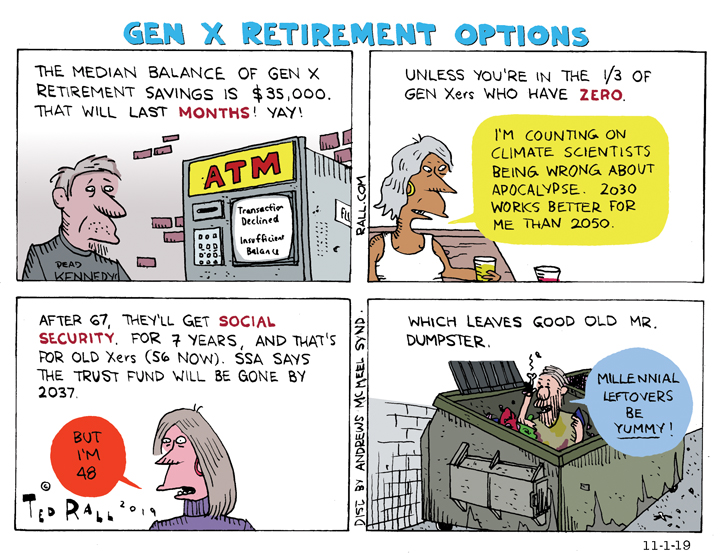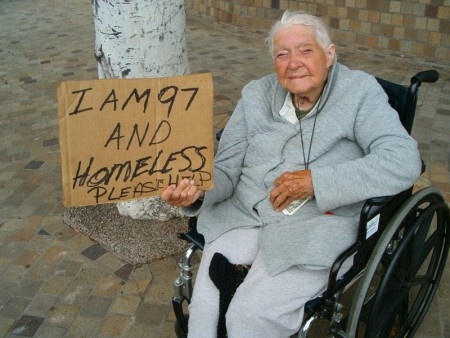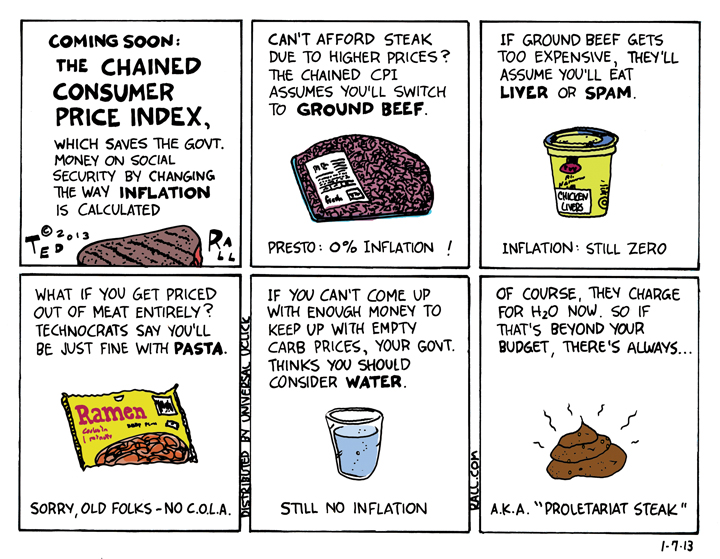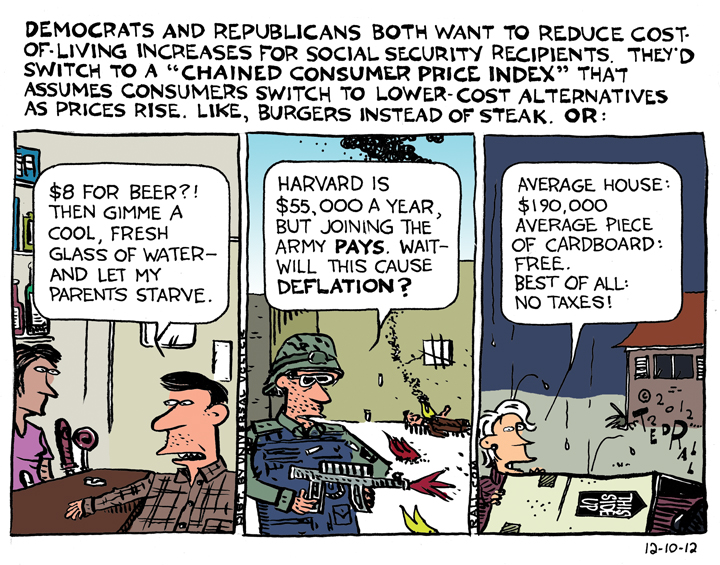American political cartoonists Ted Rall (from the Left) and Scott Stantis (from the Right) discuss the hottest issues of the week. Abortion is at the top of the news again in the week of a landmark lawsuit filed by five Texas women who almost lost their lives because Texas Republicans have banned abortion in the state. As the 2024 presidential campaign heats up, pro-choice sentiment hits a record high in the polls—what does this mean for Republicans? French President Emmanuel Macron’s plan to increase the national retirement age from 62 to 64 has united the French people against him. Biden and the Democrats think they have a winning issue here with Social Security and Medicare, given Republicans’ previous messaging on the entitlement programs. Corporate media lawyers fret that defamation defendants could be vulnerable to accountability for their newsroom decisions should Dominion Voting Systems prevail in their $1.6 billion libel claim against Fox News. Would that be so terrible?
Watch the Video Version of the DMZ America Podcast:
Ep 91 Sec 1 – Texas Abortion Lawsuit
Ep 91 Sec 2 – France’s Retirement Fight
Ep 91 Sec 3 – Dominion vs. Fox News Defamation Lawsuit






